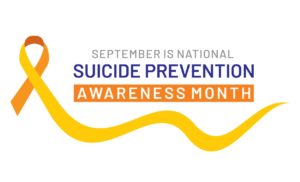How to Listen So Your Teen Feels Heard
Bailey Smith, M.Ed.

One of the most common phrases I hear from my teenage clients is “My parents never listen to me!” Teenagers often feel unheard and misunderstood by many of the adults in their lives, especially their parents, and it greatly impacts their relationships. Learning the skill of validation can help parents show their teens that they are listening and can help improve relationships over time.
When your teenager comes to you with a problem, the first thing most parents want to do is help solve it. Parents like to fix things; it’s what they’re good at. Unfortunately, this natural parental instinct is a big contributor to teens feeling unheard. Picture this scenario: your teen comes home with a low grade on a test and appears upset when they tell you about it. If you are going into “fix it” mode, your first response may be “well how much did you study?” Immediately your teen is going to shut down or become defensive, thinking that you are no longer on their side.
Validation is the art of pausing and fostering emotional connection before jumping into problem solving. The first step in validation is to identify what emotion your child might be feeling in the moment. If you’re unsure, it’s ok to guess and let them correct you. In our test scenario, this may look like, “I can see you’re feeling really disappointed about your grade on that test.” Your teen may say “No I’m not, I’m feeling mad!” That’s ok, you can just correct yourself and continue with validation.
The next step is to show that you understand your teen’s emotion and that it makes sense that they feel that way. You may say something like “I can see that you’re mad about your grade on that test because you studied for it and expected to get a better grade. I would feel mad about that too.”
At this point, your teen is feeling heard and you have connected with them instead of making them defensive. They may even be able to come up with their own solution to the problem at this point. If they can’t, this is the point where you can offer some gentle problem-solving questions to get them thinking. You may ask “Is there anything I can do to help you?” or “What do you want to do next?” It’s also important to note that if your teen is feeling very emotional about the situation, you may not get to the problem-solving stage at all. That is ok. Take their lead on this, and don’t try to jump into problem-solving when emotions are still running high.
Although pausing and connecting emotionally before problem-solving can feel strange and ineffective to parents, often the emotional connection is what your teen is truly seeking from you. They will eventually learn to solve their own problems, but they will never stop needing emotional support from you.



